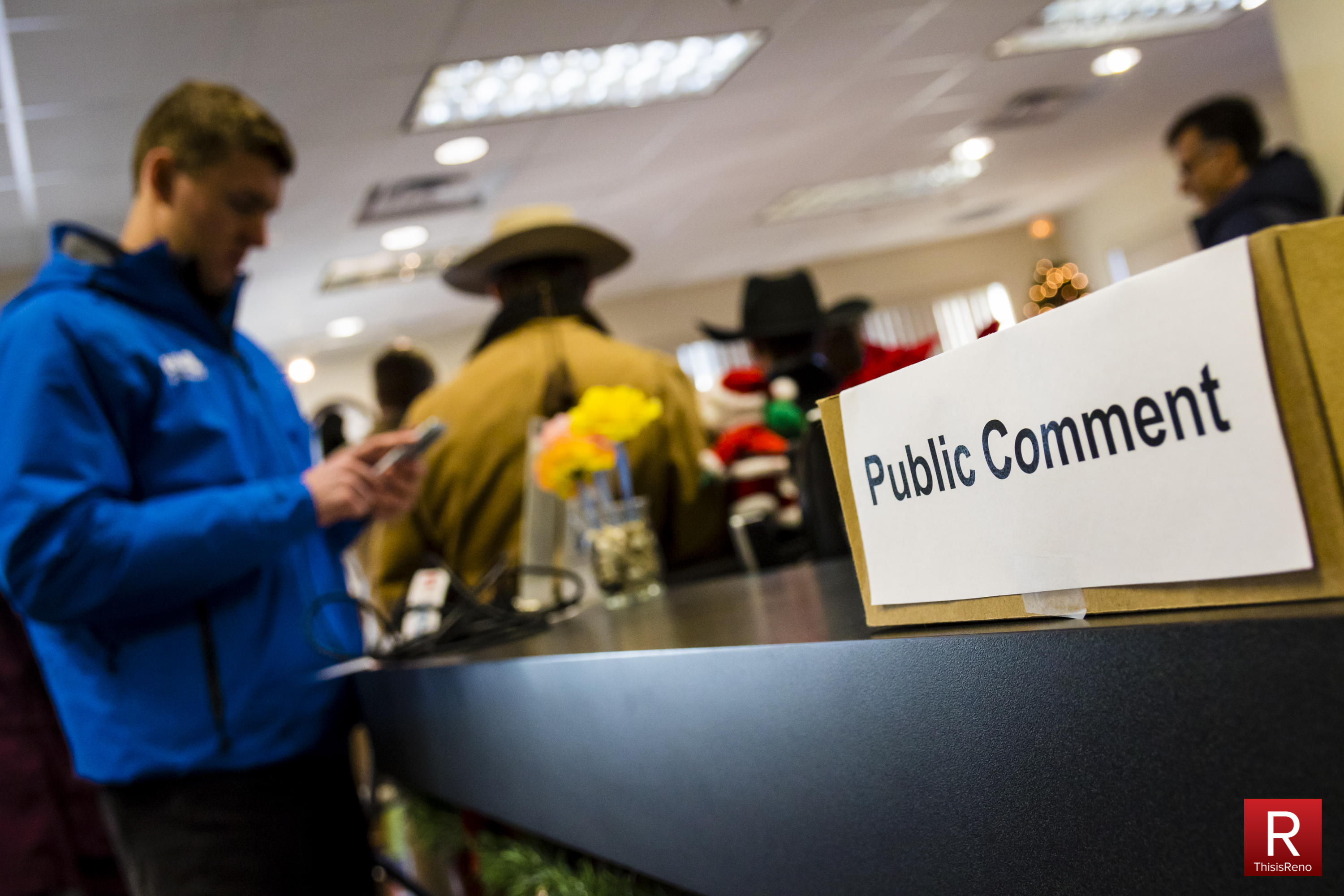By SAM METZ AP / Report for America
CARSON CITY, Nev. (AP) — Nevada lawmakers are considering proposals to add exemptions to state laws requiring transparency from government officials.
State law currently requires government officials to conduct business in meetings open to the public and guarantees the public the right to review most government documents, with some exceptions.
If passed, the proposals would limit the public’s ability to observe and scrutinize actions taken regarding hospital policies, mining projects and law enforcement conduct.
Here are a few transparency bills being considered in the 2021 legislative session:
County hospital boards
Assembly Bill 44, which has been introduced but not yet heard in the Legislature, would carve exemptions into the Open Meetings Law for county hospital boards.
If passed, the bill would allow them to make decisions about patient safety and compliance with heath care laws in closed session. The laws would have potentially made discussions that took place during the November and December surge secret, while hospitals had more patients than licensed capacity.
University Medical Center of Southern Nevada spokesman Scott Kerbs said in a statement that the bill would allow hospital boards like UMC’s to review certain activities confidentially, similar to how other agencies review some information in closed session.
Nevada Press Association President Richard Karpel wonders if the scrutiny sparked by the pandemic motivated the bill and said it would allow officials to make life-or-death decisions on behalf of the public behind closed doors.
“It just lets them hold secret meetings about public hospitals,” he said.
Decision-making processes
Assembly Bill 39 would exclude from disclosure “pre-decisional deliberations” between government agencies. If passed, the bill would also exempt notes, working papers, texts and emails “sent or received for personal purposes,” giving agencies wide discretion to withhold records of workplace communications.
Karpel said the bill would dramatically limit the public’s ability to review actions taken by government agencies.
“Everything up until the moment they decide what they want to tell us — like when the government issues a press release — would be secret,” he said.
The law could shield the decisions that lead to officer-involved shootings from scrutiny. And allowing agencies to sweepingly categorize work product as “personal” could enable them to withhold key records, Karpel said.
“When a law enforcement official interviews someone or listens to someone in the office talk about policy and writes down what was said, that’s work, not personal,” he said. “There are good reasons to keep things private and there are places in the law that allow government employees to do that, but just to say, ‘Anything we do is secret’ is wrong,” he said.
The bill has not yet been scheduled for a hearing.
Environmental reviews
Senate Bill 77 also proposes exempting certain pre-decisional discussions between agencies. The proposal, which Eureka County proposed to a legislative committee last summer, would allow officials to discuss proposed projects behind closed doors before the release of environmental reviews required under federal law.
The Bureau of Land Management often requires local governments sign non-disclosure agreements if they want to participate in drafting environmental reviews because federal law allows them to deliberate over draft documents privately to facilitate frank discussions in early stages.
But Nevada law prohibits local officials from doing so, limiting their ability to participate. They argue the bill would harmonize state and federal laws and allow them to advocate for constituents before the release of draft documents. But if the goal is participation, transparency advocates wonder why counties like Eureka aren’t lobbying the federal government to allow the public to observe the early stages of the decision-making process.
The bill received a hearing in a Senate committee on Feb. 10 but has not been voted on.
Penalties for withholding records
Assembly Bill 276, sponsored by a group of Republican lawmakers, would double penalties imposed on agencies that violate the law and withhold public records. If a judge rules that a government entity is refusing to provide records, delaying their release to an unreasonable extent or charging excessive fees, then the government will be required to pay the person or group requesting the records double the cost of the lawsuit, including attorney fees.
If passed, the proposal could discourage governments like Clark County from withholding records like the child autopsy reports they fought against releasing to the Las Vegas Review-Journal from 2017 to 2020. A district court judge ruled earlier this month that the county would have to pay the newspaper $167,000 to cover legal fees, the newspaper reported.
The bill has not yet been scheduled for a hearing.
___
Sam Metz is a corps member for the Associated Press/Report for America Statehouse News Initiative. Report for America is a nonprofit national service program that places journalists in local newsrooms to report on undercovered issues.


